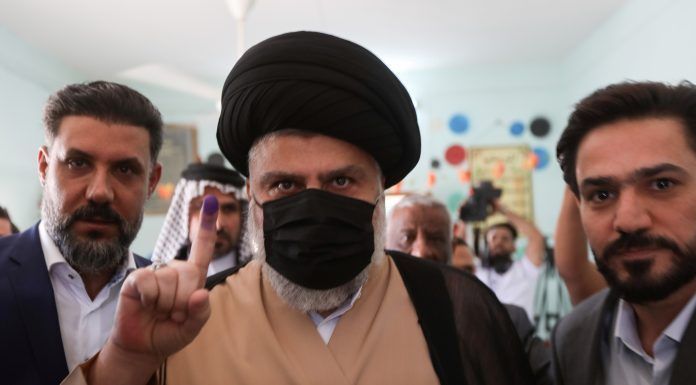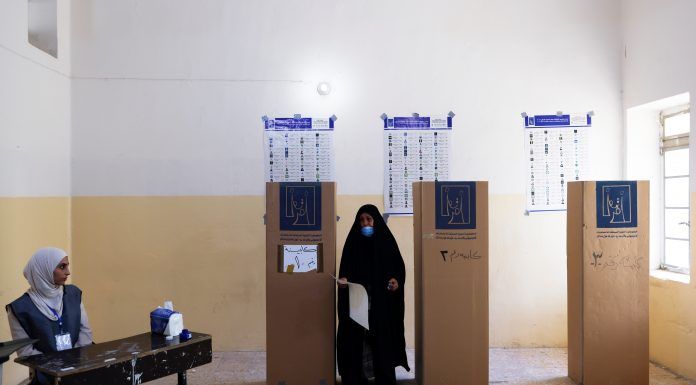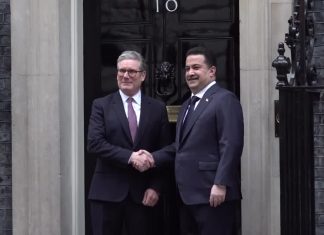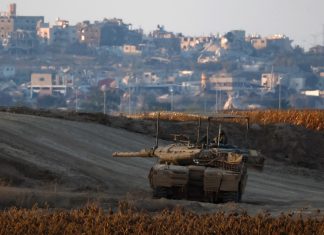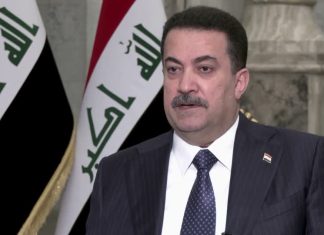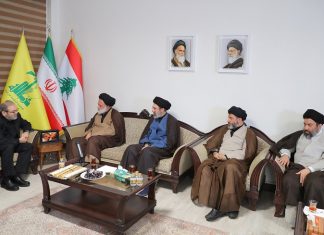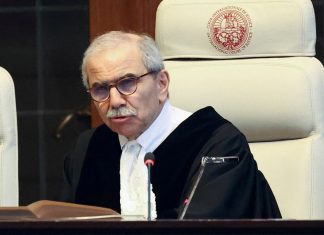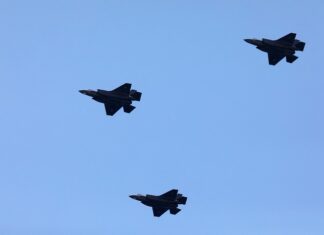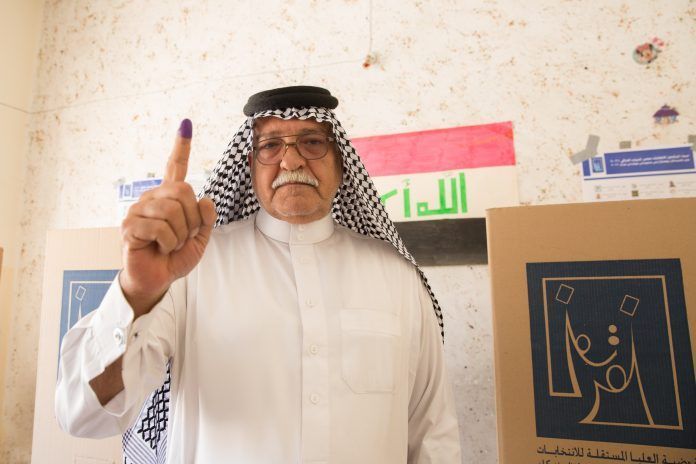
By John Davison and Ahmed Rasheed
BAGHDAD, Oct 10 (Reuters) – Iraqis were voting on Sunday in a parliamentary election that many said they would boycott, having lost faith in the democratic system brought in by the U.S.-led invasion of 2003.
The election is being held several months early under a new law designed to help independent candidates – a response to mass anti-government protests two years ago.
The established, Shi’ite Islamist-dominated ruling elite whose most powerful parties have armed wings is expected to sweep the vote, with the movement led by populist Shi’ite cleric Moqtada al-Sadr, who opposes all foreign interference and whose main rivals are Iran-allied Shi’ite groups, seen emerging as parliament’s biggest faction.
Such a result would not dramatically alter the balance of power in the country or the wider Middle East, say Iraqi officials, foreign diplomats and analysts, but for Iraqis it could mean that a former insurgency leader and conservative Islamist could increase his sway over the government.
“I’m not going to vote and my family won’t vote either, said Murtadha Nassir, a 27-year-old man in the southern city of Nassiriya, who participated in protests and watched friends gunned down by security forces.
“These groups being voted in, they’re all the ones who targeted us.”
Nonetheless, some Iraqis were keen to vote in the election – the country’s fifth parliamentary vote since 2003 – and are hopeful of change. In the northern city of Kirkuk, Abu Abdullah said he showed up to vote an hour before polling stations opened.
“I came since early morning to be the first voter to participate in an event that will hopefully bring change,” he said. “We expect the situation to improve significantly.”
At least 167 parties and more than 3,200 candidates are competing for 329 seats in parliament, according to the election commission. Iraqi elections are often followed by months of protracted negotiations over a president, a prime minister and a cabinet.
Prime Minister Mustafa al-Kadhimi is not running for election but the negotiations after the vote could yet see him get a second term. Kadhimi who is viewed as Western-friendly has no party to back him.
The Kurds have two main parties that rule the autonomous Kurdistan region, and Sunnis this time have two main blocs.
[aesop_image img=”https://kayhanlife.com/wp-content/uploads/2021/10/2021-10-10T055321Z_2062977356_RC2S6Q9KXGI5_RTRMADP_3_IRAQ-ELECTION-scaled.jpg” panorama=”off” credit=”Voters stand in line at a polling station in Duhok, Iraq, October 10, 2021. REUTERS/” align=”center” lightbox=”on” captionsrc=”custom” captionposition=”left” revealfx=”off” overlay_revealfx=”off”]
Kadhimi told reporters as he cast his ballot: “I call on Iraq people: there’s still time. Go out and vote for Iraq and vote for your future.”
Kadhimi’s government called the vote early in response to anti-establishment protests in 2019 that toppled the previous administration.
Protesters’ demands included the removal of a ruling elite most Iraqis view as corrupt and keeping the country in disrepair. The demonstrations were brutally suppressed and some 600 people were killed over several months.
Iraq is safer than it has been for years and violent sectarianism is less present since Iraq vanquished the Sunni ultra-hardliners Islamic State in 2017 with the help of an international military coalition and Iran.
But endemic corruption and mismanagement has meant many of Iraq’s 40 million people are without work, and lack healthcare, education and electricity.
“Why won’t I vote? Because I have no faith in people. Those we elected, what have they done?,” asked Mohammed Hassan, a resident of Basra.
“The same thing. Look at the garbage, the filth. Where are the projects? The previous government’s projects, where are they?”
FOREIGN INFLUENCE
The United States, the Persian Gulf Arab countries and Israel on one side and Iran on the other compete for influence in Iraq, which has provided a gateway for Tehran to support militia proxies in Syria and Lebanon.
The 2003 invasion toppled Saddam Hussein, a Sunni Muslim, and catapulted to power the country’s majority Shi’ites and the Kurds, who were oppressed under Saddam. It unleashed years of sectarian violence, including the takeover of a third of the country by Islamic State between 2014 and 2017.
Washington is removing all U.S. combat troops as part of an agreement with the Iraqi government, although the move keeps most of its 2,500 troops in the country in non-combat roles, according to U.S. officials.
That decision came under pressure from Iraq’s dominant Shi’ite parties, many of them backed by Iran, which called for the removal of U.S. forces after the U.S. killing of top Iranian military commander Qassem Soleimani in Baghdad in 2020.
(Additional reporting by Mustafa Mahmoud in Kirkuk and Aref Mohammed in Basra and Mohammed Aty in Basra Editing by William Mallard, Frances Kerry and Raissa Kasolowsky)

